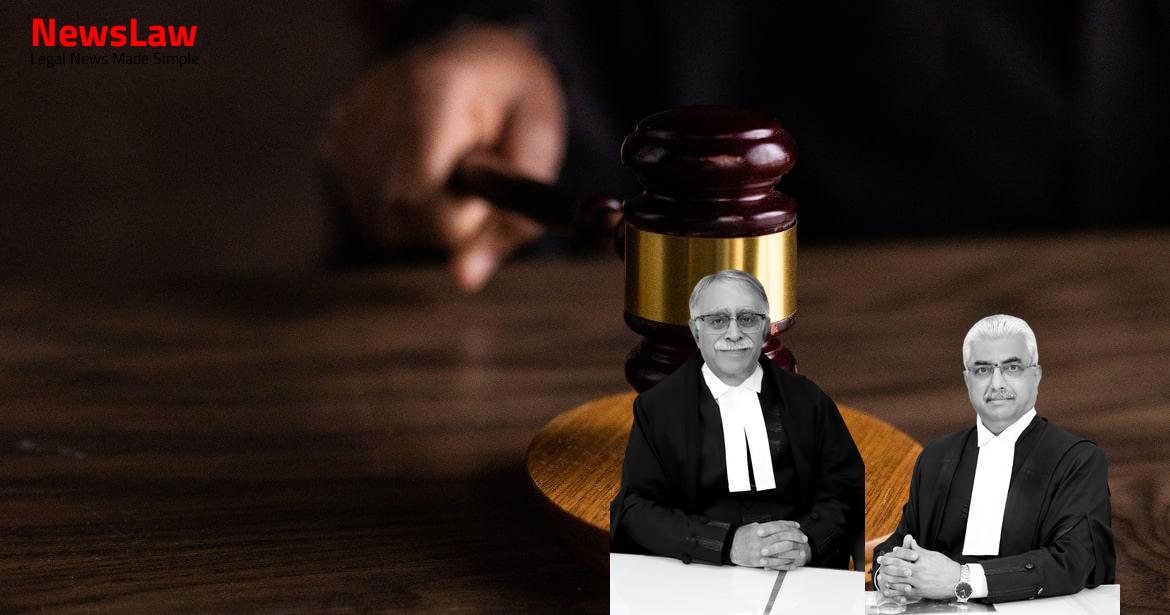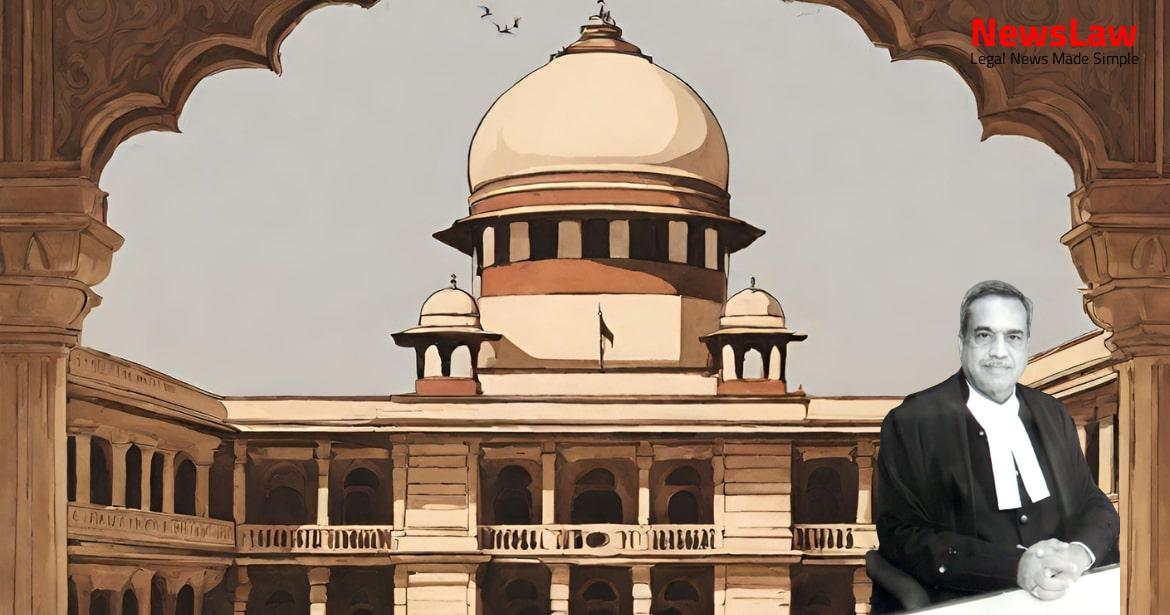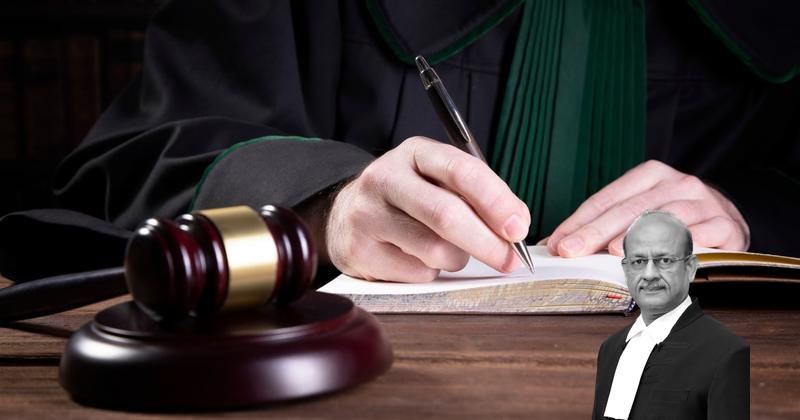Briefly, the facts relevant to the present appeal are that an Intelligence was received by the Respondent that a syndicate comprising of 1 certain Chinese, Taiwanese, and South Korean nationals in association with some Indian Nationals were in the practice of smuggling gold into India through Air Cargo by concealing gold in transformers of electroplating/ reworking machines etc.. On 18.11.2021 and 19.11.2021, acting on the said intelligence, the purported consignment was examined by the officers of Respondent No.4 and 80.126 kgs of 24 carat foreign origin gold was recovered from the said consignment in the form of ‘E’ and ‘I’ shaped plates with a market value of Rs.39.31,38,219/-. On 19.01.2022, the DRI sent a proposal to respondent No.2 to issue an order of detention under the COFEPOSA Act against the appellant, and subsequently respondent No.2 detaining authority passed the impugned detention order as against the appellant on 01.02.2022. In the meanwhile, on 10.03.2022, the appellant sent a representation letter to the Central Government, and subsequently on 04.04.2022, he made another representation to the Advisory Board. Judgment, both of which are Constitution Bench judgments, which state that the central Government must wait for the decision of the Advisory Board, are in direct contravention with Constitution Bench judgments of this Court in Pankaj Kumar Chakraborty And Ors. The decisions relied upon by the appellant are in context of the Preventive Detention Act, whereas, the Ashok Jalan case (supra) and Adullah Kuni case (supra) are in context of the COFEPOSA Act, and if the Pankaj case (supra) is seen in the context of COFEPOSA Act, due to their being a distinction between the detaining authority and the central Government in the COFEPOSA Act, there exists no friction between the two Constitutional Bench judgments. If there exists no friction between the two Constitutional judgments of this Court, can the impugned detention order be quashed on grounds of the 60-day delay in consideration of the representation made by the appellant? Whether the illegible documents written in Chinese submitted to the appellant herein are grounds enough for quashing the impugned detention order? In cases of preventive detention, where the detenue is held in arrest not for a crime he 7 has committed, but for a potential crime he may commit, the Courts must always give every benefit of doubt in favour of the detenue, and even the slightest of errors in procedural compliances must result in favour of the detenue. It is the case of the appellant that while the detaining authority considered the representation of the appellant 8 authority in an expeditious manner, however, the Government took 60 days to consider the same. After careful consideration, a Constitution Bench of this Court held that the Government must act Independently from the Advisory Board, and that there exists no mandate on 9 the Government to wait for the decision of the Advisory Board.
Though clause (5) does not in express terms say so it follows from its provisions that it is the detaining authority which has to give to the detenu the earliest opportunity to make a representation and to consider it when so made whether its order is wrongful or contrary to the law enabling it to detain him. If it was intended that such a representation need not be considered by the Government where an Advisory Board is constituted and that representation in such cases is to be considered by the Board and not by the appropriate Government, clause (5) would not have directed the detaining authority to afford the earliest opportunity to the detenu. If counsel’s contention were to be right the representation in such cases would not have to be 10 considered either by the appropriate Government or by the Board and the right of representation and the corresponding obligation of the appropriate Government to give the earliest opportunity to make such representation would be rendered nugatory.
The obligation of the appropriate Government to afford to the detenu the opportunity to make a representation and to consider that representation is distinct from the Government’s obligation to constitute a Board and to communicate the representation amongst other materials to the Board to enable it to form its opinion and to obtain such opinion. Sections 8 and 9 enjoin upon the appropriate Government to constitute an Advisory Board and to place within 30 days from the date of the detention the grounds for detention, the detenu’s representation and also the report of the 11 officer where the order of detention is made by an officer and not by the Government. Obviously, the intention of Parliament could not have been that the appropriate Government should pass an order under Section 13 without considering the representation which has under Section 7 been addressed to it. For the purpose of convenience, the relevant paragraph of the said judgment is being reproduced herein: “ In the present case, the State of West Bengal is guilty of infraction of the Constitutional provisions not only by inordinate delay of the consideration of the representation but also by putting of the consideration till after the receipt of the opinion of the Advisory Board. The inescapable conclusion in the present case is that the appropriate authority failed to discharge its Constitutional obligation by lack and inactivity of independent judgment.” In the Harardhan Saha Case (Supra), yet another Constitution Bench of this Court considered the distinction between the consideration of the representation made by the detenue in cases of preventive detention, and it was stated that if the representation was made before the matter is referred to the Advisory Board, the detaining authority must consider such representation, but if the representation is made after the matter is referred to the Advisory Board, the detaining authority would first consider it and then 13 send it to the Advisory Board.
Also Read: https://newslaw.in/supreme-court/modification-of-final-order-for-placement-of-sale-proceeds/
Section 8 of the Act which casts an obligation on the State to consider the representation affords the detenu all the rights which are guaranteed by Article 22(5). If a representation is made after the matter has been referred to the Advisory Board, the detaining authority will consider it before it will send representation to the Advisory Board.” Subsequently, in the case of Francis Coralie Mullin v. Article 22(5) vests in the detenu the right to be provided with an opportunity to make a representation. We agree : (1) the detaining authority must provide the detenu a very early opportunity to make a representation, (2) the detaining authority must consider the representation as soon as possible, and this, preferably, must be before the representation is forwarded to the Advisory Board, (3) the representation must be forwarded to the 15 Advisory Board before the Board makes its report, and (4) the consideration by the detaining authority of the representation must be entirely independent of the hearing by the Board or its report, expedition being essential at every stage. But, allowance must surely be made for necessary consultation where legal intricacies and factual ramifications are involved. State of W.B., (1970) 1 SCC 219 : 1970 SCC (Cri) 92]
We would make one observation.
The representation may be received before the case is referred to the Advisory Board, but there may not be time to dispose of the representation before referring the case to the Advisory Board.
Also Read: https://newslaw.in/case-type/civil/land-resumption-and-annulment-setting-aside-impugned-orders/
If the representation is received by the Government after the Advisory Board has made its report, there could then of course be no question of sending the representation to the Advisory Board. Section 3 of the two acts providing for preventive detention, for a ready reference, are being reproduced hereunder in a table chart: COFEPOSA ACT, 1974 PREVENTIVE DETENTION ACT, 1950 Section 3. (1) The Central Government or the State Government may- (a) if satisfied with respect to any person that with a view to preventing him from acting in any manner prejudicial to- (i) the defence of India, the relations of India with foreign persons, or the security of India, or 18 for the purposes of this section by that Government, may, if satisfied, with respect to any person (including a foreigner), that, with a view to preventing him from acting in any manner prejudicial to the conservation or augmentation of foreign exchange or with a view to preventing him from— (i) smuggling goods, or (ii) abetting the smuggling of goods, or (iii) engaging in transporting or concealing or keeping smuggled goods, or (iv) dealing in smuggled goods otherwise than by engaging in transporting or concealing or keeping smuggled goods, or (v) harbouring persons engaged in smuggling goods or in abetting the smuggling of goods, it is necessary so to do, make an order directing that such person be detained:
(3) For the purposes of clause (5) of (ii) the security of the State or the maintenance of public order, or (iii) the maintenance of supplies and services essential to the community; or (b) if satisfied with respect to any person who is a foreigner within the meaning of the Foreigners Act, 1946-(31 of 1946), that with a view to regulating his continued presence in India or with a view to making arrangements for his expulsion from India it is necessary so to do, make an order directing that such person be detained. (3) When any order is made under this section by any officer mentioned in sub-section (2) he shall forthwith report the fact to the State Government to which he is subordinate together with the grounds on which the order has been made and such other particulars as in his opinion have a bearing on the matter, and no such order made after 19 article 22 of the Constitution, the communication to a person detained in pursuance of a detention order of the grounds on which the order has been made shall be made as soon as may be after the detention, but ordinarily not later than five days, and in exceptional circumstances and for reasons to be recorded in writing, not later than fifteen days, from the date of detention the commencement of Preventive Detention (Second Amendment) Act, 1952 (61 of 1952), shall remain in force for more than twelve days after the making thereof unless in the meantime it has been approved by the State Government. However, under Section 3 of the Preventive Detention Act, the specially empowered officer, within 12 days of the detention, has to seek for an approval from the Government for continued detention, and only if the Government approves the same can the detention be continued. , the relevant extract of the abovesaid judgment is being reproduced hereunder: “The second premise that the Central Government becomes the detaining authority since there is deemed approval by the Government of the order made by the officer specially empowered in that regard from the time of its issue, runs counter to the scheme of the COFEPOSA Act and the PIT NDPS Act which differs from that of other preventive detention laws, namely, the National Security Act, 1980, the Maintenance of Internal Security Act, 1971, and the Preventive Detention Act, 1950.” If we read the Pankaj Kumar judgment (Supra) in light of this distinction between the specially empowered officer and the Government in the COFEPOSA Act, we find that there exists no friction between the Pankaj Kumar Judgment (Supra) and the Abdullah Kunhi Judgement (Supra), since the Pankaj Kumar Judgement, while mandating the central Government to not wait for the decision of the Advisory Board, only does so because the central Government is the detaining officer in the Preventive Detention Act. The Abdullah Kunhi Judgment (supra) however, since it was rendered in the context of the COFEPOSA Act, the mandate thereunder would squarely apply only to the Government, and not the detaining authority.
Union of India, (1991) 1 SCC 476 : 1991 SCC (Cri) 613] it would be proper for the appropriate Government to wait till the report was received from the Advisory Board, while at the same time the specially empowered officer who had acted as the detaining authority would be obliged to consider the representation with utmost expedition. ISSUE II-
If there exists no friction between the two Constitutional judgments of this Court, can the impugned detention order be quashed on 23 grounds of the 60-day delay in consideration of the representation made by the appellant?
This was also done in accordance with the decision of the Abdullah Kunhi case (supra), since the Government, being a separate authority, is bound to wait for the decision of the Advisory Board. , this Court held that in cases of preventive detention, as per the principles enshrined under Article 22(5) of the Constitution Of India, the detaining authority must explain the grounds of detention to the detenue, and must provide the material in support of the same and in the language understood by the detenue.
It is important to note that the circumstances of the appellant herein, as far as the present detention is concerned, is identical to the case of the co-detenue who’s detention order was quashed. , this Court while deciding on a quashing of a detention order, categorically held that in cases where a similarly placed co-detenue has already been granted the relief of a quashing of the detention order, the principle of parity must apply, and the same relief should be extended to other similarly placed detenues.
Every procedural rigidity, must be followed in entirety by the Government in cases of preventive detention, and every lapse in procedure must give rise to a benefit to the case of the detenue. (KRISHNA MURARI)………….
Case Title: PRAMOD SINGLA Vs. UNION OF INDIA (2023 INSC 344)
Case Number: Crl.A. No.-001051-001051 / 2023



